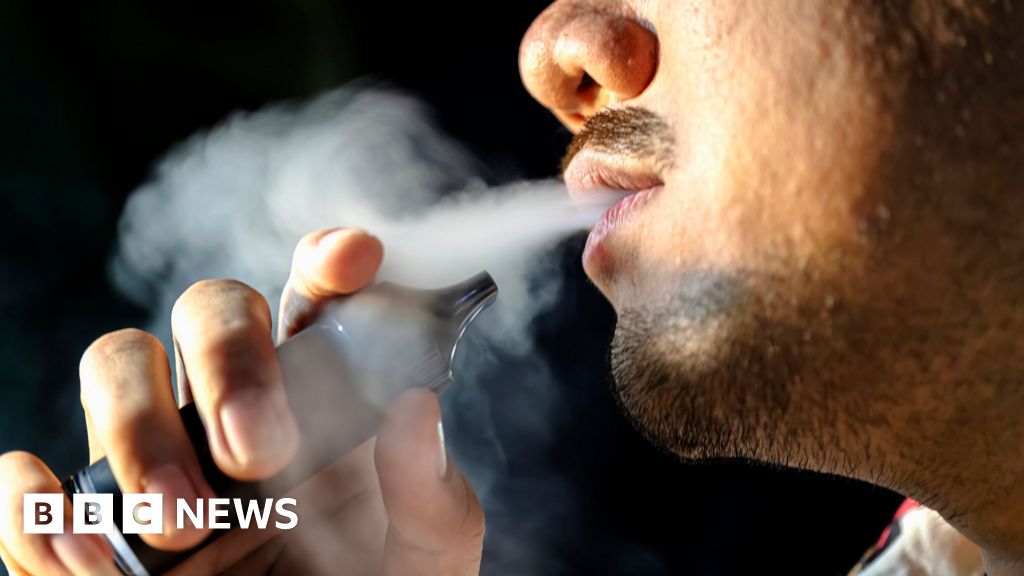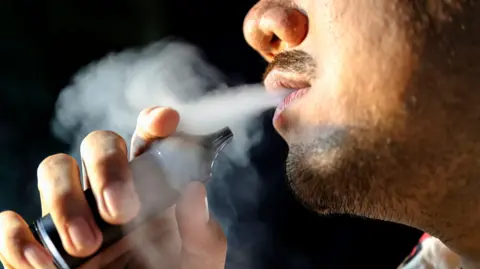Singaporean authorities have announced tougher penalties for vaping as they try to crack down on the increasing use of drug-laced vapes in the country. These include stiffer fines, longer jail terms and even caning. Foreigners may also be deported.
While Singapore was one of the first places in the world to ban vaping in 2018, the practice has persisted and in recent months, the city-state has seen a rise in popularity of vapes laced with etomidate, an anaesthetic drug.
This has caused widespread alarm in a country with some of the world's toughest drug laws. In recent months, authorities have acknowledged the growing prevalence of etomidate-laced vapes, referred to in Singapore as Kpods - a nickname that reflects their similarity to keto substances.
Tests conducted in July on a random sample of 100 seized vapes revealed that approximately one-third contained etomidate. Disturbing videos of young people acting erratically while using these devices have sparked public concern, fueling support for stringent penalties against drug use.
Health Minister Ong Ye Kung stated that these tougher laws are crucial as vapes have become a gateway for serious substance abuse. The government has taken steps to criminalize etomidate as a Class C controlled drug for an interim period of six months, effective from September 1.
Those caught vaping, including those using standard devices, will face increased fines beginning at S$500 (£288; $390) and may be required to undertake rehabilitation programs. Penalties will intensify for those using drug-laced vapes, with suppliers facing up to 20 years in prison and 15 strokes of a cane for severe violations.
These regulations apply to both foreign employees and tourists, with signage at Changi Airport reminding visitors of the ban. In a proactive effort, disposal bins for vapes have been placed across community centers, enabling users to discard their devices penalty-free.
This crackdown aligns with a broader international trend as countries around the world are imposing stricter regulations on vaping, particularly focusing on youth involvement and drug-related issues.


















